The year 2021 was one in which Israel advanced ties with its Arab allies, while war broke out with the Palestinians.
The Right lost government control in Washington and Jerusalem, but that dramatic shift did not necessarily empower the Left to make major changes with respect to the conflict.
Instead, Israeli and US leaders wanted to shelve the Palestinian conflict and maintain the “status quo” in light of the COVID-19 pandemic and other larger crises.
A brief Gaza war and rising West Bank and Jerusalem violence were sharp reminders, however, that the conflict is never static. There were a few small oases of hope. Otherwise in the absence of any progress it became more radicalized, including an apartheid campaign, a war crimes probe and an ice cream boycott.
The Left and the international community pushed to pressure Israel to abandon the West Bank, while the Right held on to dreams of sovereignty over Judea and Samaria.
Here are 12 takes on the highs and lows of the Israeli-Palestinian conflict over the last year:
1. Politicians put the conflict on ice
In Washington, Democratic President Joe Biden replaced his Republican predecessor, Donald Trump, thereby setting a new tone out of the White House. Trump had entered office pledging to make “the Deal of the Century,” which would resolve the Israeli-Palestinian conflict. Biden, in contrast, is the first president in more than two decades to enter office without pushing for a plan to resolve the conflict. He has instead asked both sides to stay in a holding pattern and not to take any steps that would prevent a resolution of the conflict.
In Jerusalem, Prime Minister Naftali Bennett created a rainbow coalition of politicians from the Right, Center and Left, which replaced Benjamin Netanyahu’s right-wing government. That coalition also agreed not to tackle the conflict or make any drastic changes.
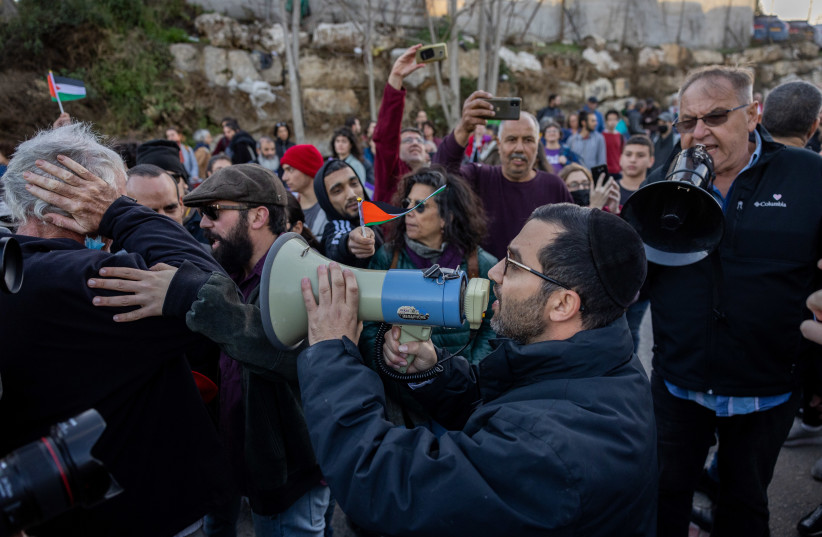
2. Sheikh Jarrah and Palestinian Jerusalem evictions
After decades of a protracted land battle, the pending eviction of 28 families in the Sheikh Jarrah neighborhood, also known as Shimon Hatzadik, generated global headlines. Two 23-year-old activists from the east Jerusalem neighborhood, twins Mohammed and Muna El-Kurd, addressed the UN in New York on the issue and were included in Time’s list of the 100 most influential people of the year.
The 28 families live on land that was owned by Jews prior to the War of Independence, and which lower courts have ruled now belongs to the Nahalat Shimon company. The families, who originally fled homes in sovereign Israel, arrived in Sheikh Jarrah when it was part of Jordan. They have argued that they made an agreement with the Jordanian government to give up their refugee status in exchange for their homes. Their ownership of the land was not registered prior to the Six Day War, in whose aftermath the neighborhood was transferred to Israeli rule.
Riots broke out often this year between Jewish and Palestinians residents of the neighborhood, which added to overall tension in the city.
Their story also highlighted the larger issue of pending evictions of Palestinians in east Jerusalem and the lack of adequate planning and housing approvals.
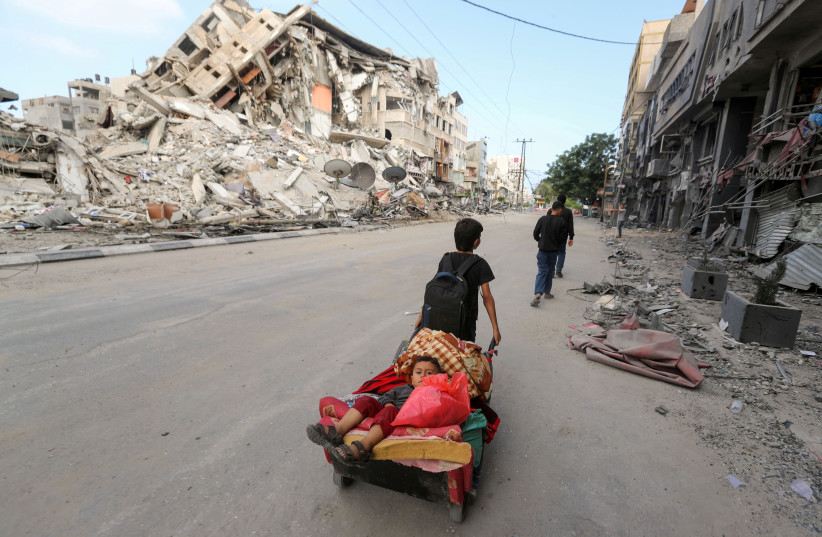
3. The Gaza war and Hamas’s leadership prowess
Hamas flexed its muscles beyond the Gaza Strip to stake its claim as the representative of all Palestinian people, not just those who live in the enclave it rules.
All past Gaza wars dating back to 2007 were sparked by events in the Strip, which Hamas has forcibly ruled since it ousted Fatah 14 years ago in a bloody coup.
This time, Hamas launched rockets at Israel in May over tensions in Jerusalem, thereby sparking an 11-day conflict. Known as Operation Guardian of the Walls, it claimed the lives of 12 civilians and one soldier in Israel.
Over 3,500 rockets were fired at Israel, most of which were intercepted by the Iron Dome. There were times, however, that the air-defense system could not keep up with Hamas’s rapid-fire ability. It was a sharp reminder of the terrorist group’s growing military capability.
Some 260 Palestinians were killed in the conflict – either from Israeli counterstrikes or Hamas rockets that fell short – of whom 100 were terrorists.
Among the more high-profile IDF counterstrikes against Hamas targets was the one that collapsed a 12-story building that housed media outlets, including the Associated Press.
Since the cessation of hostilities, Egypt has attempted to indirectly broker a long-term truce, but at best its actions have only led to a prolonged period of calm.
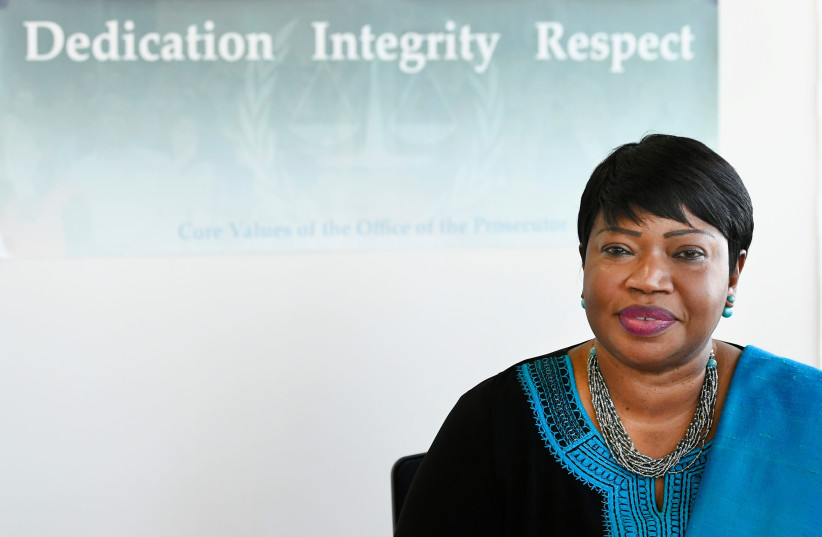
4. ICC probes Israeli war crimes
Israelis this year moved a step closer to standing in the dock at The Hague for war crimes.
In February, a three-member Pre-Trial Chamber at The Hague ruled that the International Criminal Court had the jurisdiction to hear war crimes cases against Israelis and Palestinians with respect to incidents that occurred in Gaza, the West Bank and east Jerusalem.
In March, former ICC chief prosecutor Fatou Bensouda opened an investigation into alleged war crimes with respect to the Israeli-Palestinian conflict stating that “there are admissible potential cases.”
She noted that the ICC would focus “its attention on the most notorious alleged offenders or those alleged to be the most responsible for the commission of the crimes.”
In April, Israel decided not to cooperate with the ICC.
The ICC’s investigations only cover incidents that occurred since June 13, 2014. It is expected to focus on the 2014 Gaza war, known as Operation Protective Edge, settlement activity and Jewish building in east Jerusalem, and the Gaza border riots that were part of the Great March of Return in 2018-2019.
Israeli leaders most vulnerable to ICC charges are former defense ministers Moshe Ya’alon and Avigdor Liberman and former prime minister Benjamin Netanyahu as well as Prime Minister Naftali Bennett and Defense Minister Benny Gantz.
In June, Bensouda, during whose tenure the entire question of war crimes suits against Israelis had been advanced starting in 2015, ended her term as chief prosecutor. She was replaced by Karim Ahmad Khan of Great Britain.
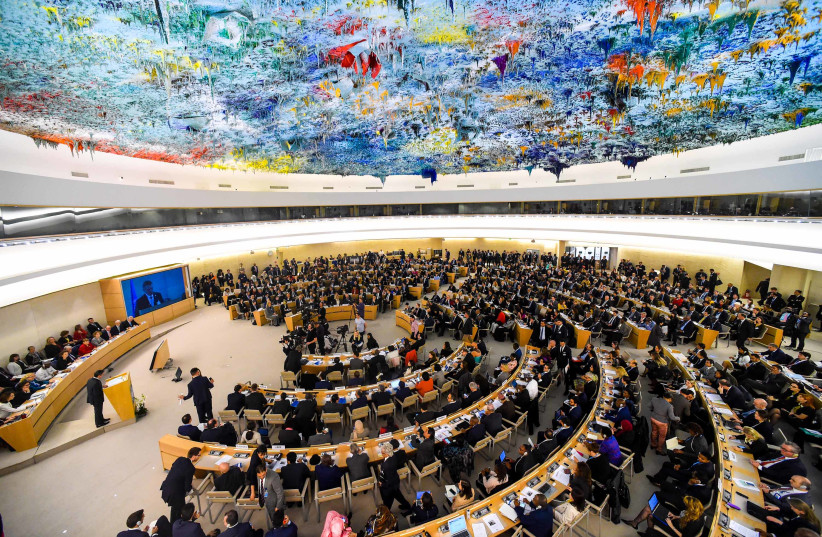
5. UNHRC’s open-ended war crimes probe
In May, the 47-member UN Human Rights Council approved an unprecedented open-ended investigation into alleged Israeli war crimes.
The move was sparked by the Gaza war in May. The probe, however, has a broad mandate and includes all alleged Israeli human rights violations in Gaza, the West Bank and sovereign Israel.
In December, the General Assembly Fifth Committee approved funding for the probe, with the backing of 125 countries.
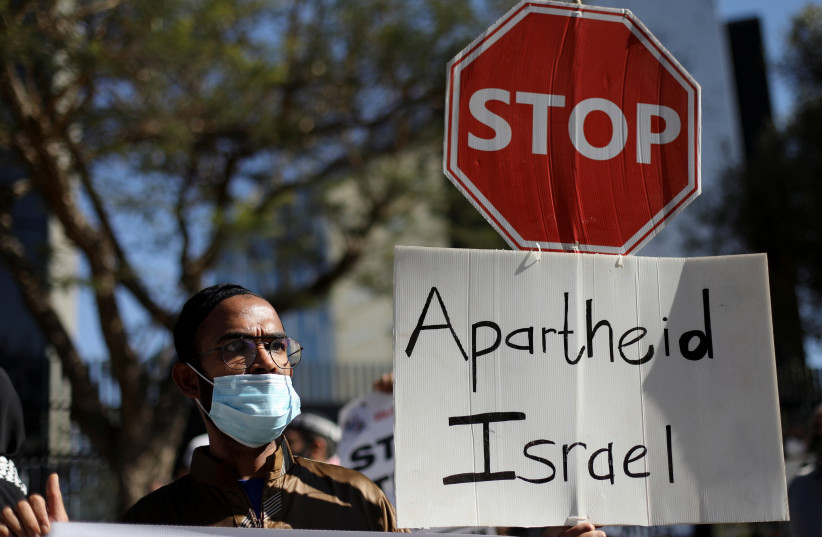
6. Israel as an apartheid state
A number of prominent domestic and international NGOs, including B’Tselem and Human Rights Watch, opened a new campaign against Israel to label it as an apartheid state.
They stopped dividing the area conceptually between sovereign and non-sovereign Israel. Nor did they look at it through the lens of territory, in which Israel and the Palestinian Authority had different areas of jurisdiction.
Instead they considered that Israel was a regime that controlled the entire territory from the Mediterranean Sea to the Jordan River, and that its treatment of Palestinians was consistent with that of apartheid.
It’s a classification Israeli right-wing legal experts have rejected.
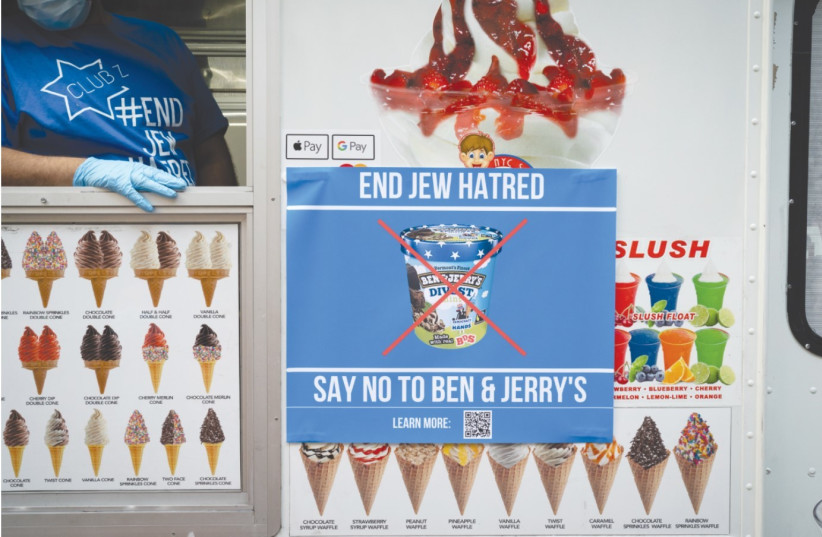
7. Ben & Jerry’s de-facto boycott of Israel
Vermont-based global ice cream chain Ben & Jerry’s set a precedent when it came to settlement boycotts by targeting a franchise located in southern Israel within the pre-1967 lines.
Its independent board of directors in July announced the termination of its contract with that 35-year franchise by the end of 2022 because it sold ice cream over the pre-1967 lines.
“We believe it is inconsistent with our values for Ben & Jerry’s ice cream to be sold in the Occupied Palestine Territory,” the board said.
It was a move that turned the decision into a de-facto boycott of Israel.
Other settlement boycotts have targeted companies located over the ’67 lines and have not gone after product sales, which is a normative move for Israeli companies.
British-based parent company Unilever and the Ben & Jerry’s CEO have rejected the premise that it’s an anti-Israel boycott and have spoken of opening a new franchise that would only sell ice cream within the ’67 lines, but have not taken any steps in that direction.
The move, however, highlighted the strong US laws that exist on a state level against such boycotts, with a number of states such as Arizona, Illinois, Florida and New Jersey taking steps to divest from Ben & Jerry’s and Unilever.
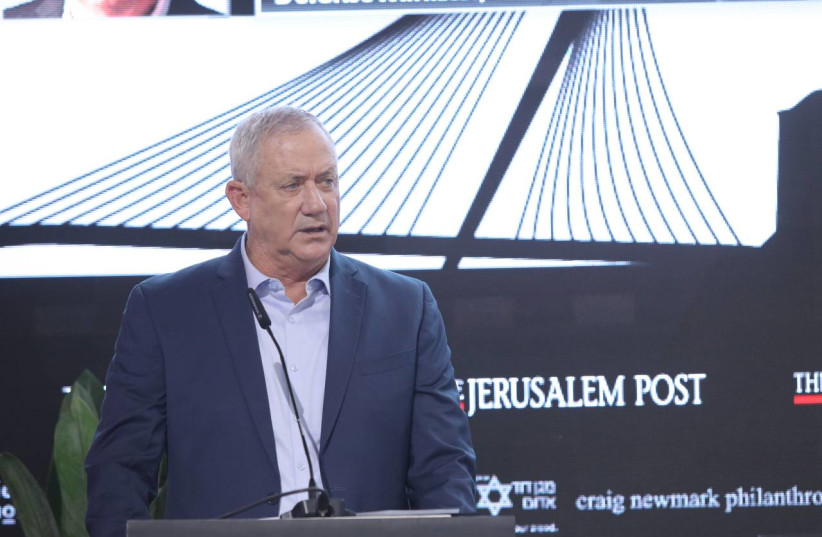
8. Gantz declares six Palestinian NGOs as terror groups
Defense Minister Benny Gantz took an unusual step against Palestinian civic organizations, labeling six of them as terror entities.
They were: Al-Haq, Addameer, the Bisan Center, the Defense for Children International – Palestine, the Union of Agricultural Work Committees and the Union of Palestinian Women’s Committees.
The Defense Ministry charged that groups “constitute a network of organizations active undercover on the international front on behalf of the Popular Front for the Liberation of Palestine,” which Israel, the United States and the European Union have designated as a terror organization.
The ministry alleged that the six NGOs “serve as a central source for the financing of the [PFLP]’s activity in general and take a significant part in building the organization’s force and the growth of the terror organization.” The NGOs have denied the charges, and the Defense Ministry did not provide public proof of its allegations. European nations and the UN have taken Israel to task, alleging that it was criminalizing Palestinian civic society.
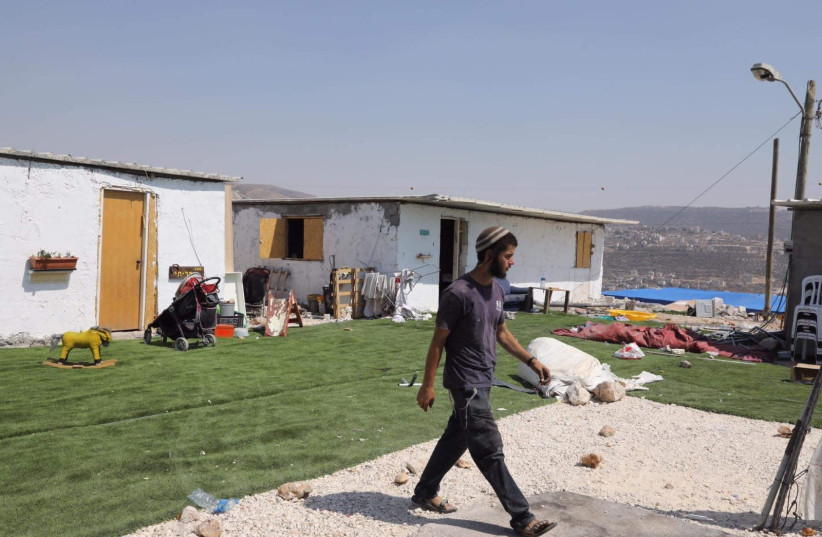
9. Outposts lose, but Evyatar wins
The year began with a failed campaign by the Yesha Council and the Right to sway Netanyahu to authorize 70 illegal West Bank outposts, or at least issue a declaration of intent.
But in the spring, a grassroots campaign made its mark, when it secured a pledge from Bennett to authorize the small community as a new settlement.
The initiative was spearheaded by Daniella Weiss, secretary-general of the Nahala Movement, and Yossi Dagan, who heads the Samaria Regional Council.
It capitalized on a unique window of opportunity created by the Gaza war and coalition politics, which distracted the attention of both the IDF and the Prime Minister’s Office.
Settlers had attempted to build an outpost on that hilltop in 2013, in the aftermath of a terror attack at the Tapuah junction in which Evyatar Borovsky, 32, was killed. The outpost named for the victim, an actor and a father of five, was quickly evacuated.
In May, in the aftermath of a terror attack at the same junction, which claimed the life of 19-year-old seminary student Yehuda Guetta, right-wing activists rebuilt Evyatar. More than 50 families moved onto the site.
Fearful of forced evacuation, the newly elected Bennett struck a deal in which activists agreed to voluntarily leave, in exchange for eventual governmental authorization of the hilltop as a new settlement.
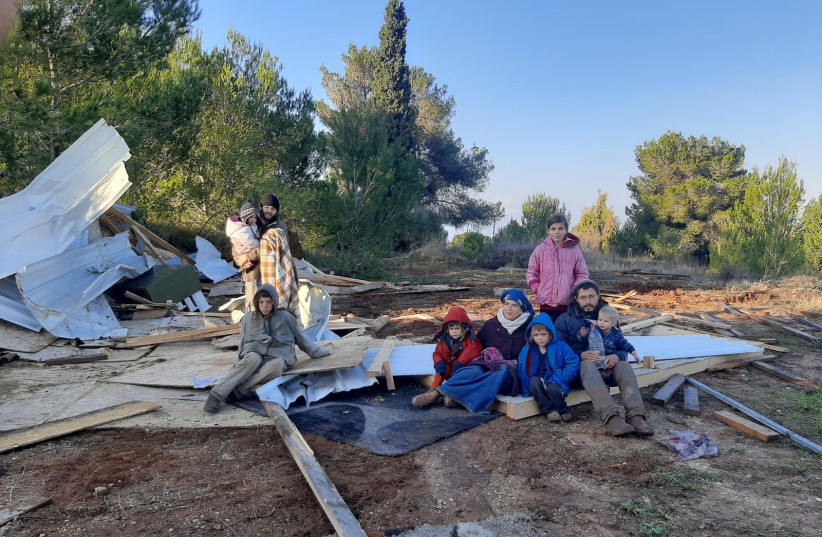
10. Drive to rescind Disengagement gets boost
The drive to rescind the 2005 Disengagement – in which 21 settlements in Gaza and four in northern Samaria were destroyed – received a boost in December.
Right-wing activists and settlers have long sought to symbolically undo the 2005 evacuation by swaying the government to rebuild the four northern Samaria settlements.
They have filed multiple Knesset bills on the matter and held marches, with a specific focus on the Sa-Nur and Homesh hilltops. To maintain an Israeli claim on the latter hilltop, the small modular Homesh Yeshiva has illegally existed there for the last 15 years.
The tenuous nature of those sites was underscored by the Trump administration’s peace plan unveiled in 2020, which designated the area of those four settlements for inclusion in a future Palestinian state.
On December 16, Palestinian gunmen sprayed a vehicle with bullets as it exited the hilltop, killing 25-year-old Yehuda Dimentman, who was a student at that yeshiva.
His family, including his widow, Ethia, has asked that the government authorize the yeshiva and rebuild the Homesh settlement in his memory.
His death and the family’s request has transformed legalization of the hilltop into a popular rallying cry among the Right, which held a protest event there that drew 15,000 activists.

11. US, Israel restores ties with the PA
The US reestablished ties with the Palestinian Authority, which had been severed under the Trump administration, including the restoration of financial assistance to the Palestinians and to United Nations Relief and Works Agency for Palestinian refugees.
Top American officials have visited PA President Mahmoud Abbas in Ramallah, including US Secretary of State Antony Blinken, US National Security Advisor Jake Sullivan and US Ambassador to the UN in New York Linda Thomas-Greenfield.
But some major steps have yet to be taken, including reopening the PLO’s mission in Washington and the US consulate general in Jerusalem, which served as a de-facto American embassy to the PA.
Bennett has visited Biden in the White House, but Abbas has yet to do so.
A number of senior Israeli officials have also held a dialogue with the PA, including Gantz and President Isaac Herzog, both of whom visited Abbas in Ramallah.
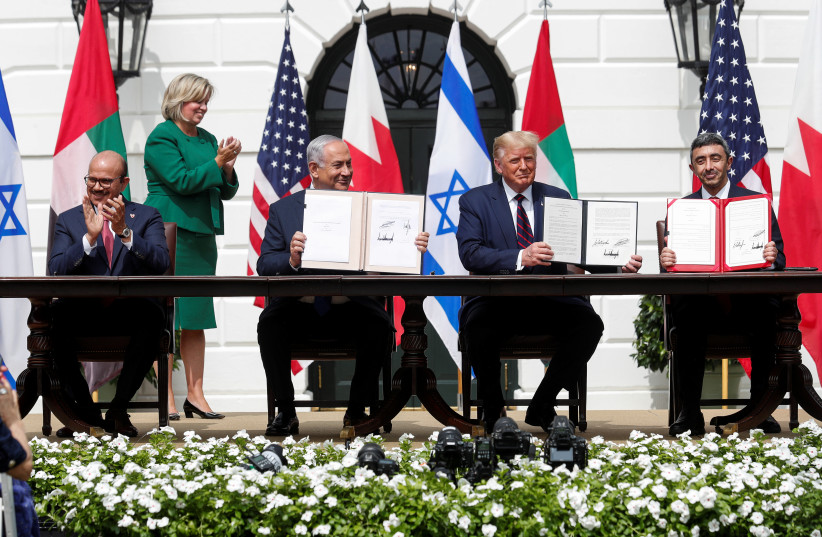
12. Abraham Accords have staying power
Israel’s growing ties with three of the four Arab countries with which it normalized relations in 2020 showed that the Abraham Accords, one of the Trump administration’s signature initiatives in the Middle East, was not a passing fad.
From 2002-2020, the Arab world insisted that it would only establish ties with Israel once it withdrew to the pre-1967 lines. The Abraham Accords ended that choke hold and allowed relations to continue irrespective of the resolution of the conflict.
It was unclear, however, how they might survive in the aftermath of Trump and or if there was a crisis, such as a Gaza war.
Relations between Israel and three of the signatories – the United Arab Emirates, Bahrain and Morocco – strengthened in 2021, with Bennett making the first ever Israeli prime ministerial visit to the UAE. Israel also opened embassies in the UAE and Bahrain as well as a diplomatic office in Morocco.
